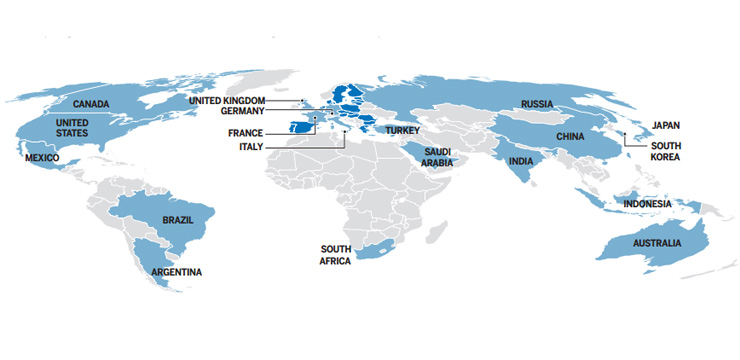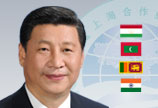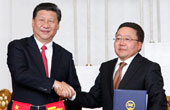Xi's South Pacific trip to promote regional cooperation
BEIJING - Days after hosting his colleagues for Asia-Pacific Economic Cooperation (APEC) meetings, Chinese President Xi Jinping will fly across the equator Friday for a back-to-back gathering of world leaders.
In Australia's Brisbane, where the 9th Group of 20 (G20) Summit is to be held on Nov. 15-16, Xi will continue brainstorming with other leaders on ways to promote regional cooperation and achieve higher-level integrated development.
After that, he will pay state visits to Australia, New Zealand and Fiji, where he is to meet with leaders from Pacific island countries that have established diplomatic ties with China.
PROMOTING GROWTH WITH CHINA'S CONTRIBUTION
The upcoming trip will mark the second time for Xi to attend the G20 Summit, which is a crucial international forum to discuss global economic affairs.
In Beijing, APEC member economies have spoken in one voice on boosting economic growth and enhancing connectivity, including pooling support for the establishment of the Free Trade Area of the Asia-Pacific, the Asian Infrastructure Investment Bank as well as a Silk Road Fund.
They also vowed to work for the formulation of the APEC Blueprint on Connectivity to provide a strong backing for the Asia-Pacific's long-term development.
In Brisbane, G20 members, which account for two-thirds of the world's population, 90 percent of the world's GDP and 80 percent of international trade, are expected to put the revival of global economic growth high on agenda once again.
Meanwhile, strengthening risk resistance ability, intensifying global anti-corruption and judicial cooperation and reinforcing the joint efforts against Ebola will also be the highlights.
"As its overall national strength grows, China will be both capable and willing to provide more public goods for the Asia-Pacific and the world, especially new initiatives and visions for enhancing regional cooperation," Xi said in his speech at the APEC CEO Summit.
He also sketched out a full picture of the Chinese economy's "new normal," which features an economy shifting gear from high to a medium-to-high speed growth and increasingly driven by innovation instead of input and investment, with its structure being constantly improved and upgraded.
The International Monetary Fund has kept its growth forecast for China at 7.4 percent for 2014, noting that China will contribute 27.8 percent to the world's total growth this year, and 50 percent to that of Asia.
As China strives to build an open economic system through comprehensively deepening reforms, countries worldwide should be at ease that they can continue sharing China's growth bonus. ' China has been supporting the G20 in playing a bigger role in global economic governance, and has been offering constructive proposals.
According to Treasurer of Australia Joe Hockey, G20 members have made a lot of suggestions to increase global GDP by an additional 2 percent by 2018, including some encouraging ones from China.
China introduced to the G20 the idea of "staying together and working closely for win-win situation," promoted issues relating to developing countries' demands, and fulfilled its promise in implementation, said Zhu Jiejin, a professor with the Center for BRICS Studies at Fudan University.
Meanwhile, former U.S. President Jimmy Carter has also said China has played an active role in global governance in recent years.
Related Stories
IMF calls on G20 to boost growth 2014-11-13 10:28
Australian informality to encourage friendly, open G20 discussion 2014-11-13 10:14
World leaders set to arrive for G20 2014-11-13 09:53
Australian business leaders, scholars call G20 big opportunity 2014-11-13 09:28
Chinese president to attend G20 Summit in Australia 2014-11-07 13:25
Modi, Cameron to address Australian parliament during G20 trip 2014-10-28 16:55
Background



